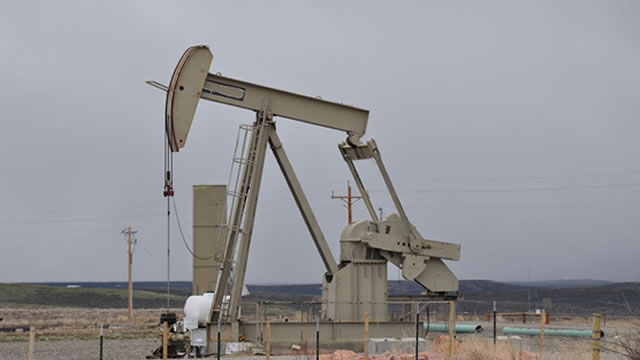Oil Prices Surge: A New Wave of Sanctions Against Iran
The oil market experienced a significant surge on Tuesday as the United States announced fresh sanctions against Iran, heightening concerns over potential supply disruptions in the Middle East. The Brent crude oil benchmark reached a high of $74.37 per barrel, marking a 2.2% increase from the previous day’s close.
Background: US Sanctions on Iranian Oil
The latest round of sanctions imposed by the U.S. target Iran’s oil sector, effectively reducing the country’s ability to export crude oil. The sanctions come in response to Iran’s continued uranium enrichment activities, which the international community believes are in violation of the 2015 Iran Nuclear Deal. This agreement, officially known as the Joint Comprehensive Plan of Action (JCPOA), aimed to limit Iran’s nuclear program in exchange for the relaxation of economic sanctions.
Impact on Consumers: Higher Gas Prices
- Higher demand for oil often translates to increased prices at the pump for consumers. As tensions rise in the Middle East and oil prices surge, American drivers can expect to pay more for gasoline.
- The cost of other petroleum products, such as diesel and jet fuel, may also increase, impacting businesses and travelers.
- The full extent of the price increase will depend on various factors, including the severity of the supply disruptions and the response of oil-producing countries like Saudi Arabia and Russia.
Impact on the Global Economy: Potential Consequences
- Higher oil prices can lead to inflation, as the cost of energy is a significant component of the production cost for many goods and services.
- Countries heavily reliant on oil imports, such as China and India, may face increased pressure on their balance of payments.
- The energy sector could experience volatility, with potential implications for stocks and bonds.
Possible Countermeasures: OPEC+ Production Cuts
In response to the potential supply disruptions, the Organization of the Petroleum Exporting Countries (OPEC) and its allies, known as OPEC+, are considering production cuts to help stabilize the oil market and keep prices from rising too sharply. The group, which includes Russia, Saudi Arabia, and other major oil producers, has already agreed to reduce output by 1.2 million barrels per day in 2019.
Conclusion: Monitoring the Oil Market
As the situation in the Middle East unfolds, it is essential to keep a close eye on the oil market and its potential impact on consumers and the global economy. While the full extent of the price increase remains uncertain, it is clear that higher oil prices can have far-reaching consequences. Stay informed and consider strategies to mitigate the potential financial impact on your personal budget and business operations.
Sources:
- “Brent Crude Oil Price Reaches 2019 High Amid Iran Tensions,” Reuters, October 15, 2019, https://www.reuters.com/business/energy/brent-crude-oil-price-reaches-2019-high-amid-iran-tensions-2019-10-15/
- “Iran Sanctions: What You Need to Know,” The Balance, October 14, 2019, https://www.thebalance.com/iran-sanctions-what-you-need-to-know-416235





